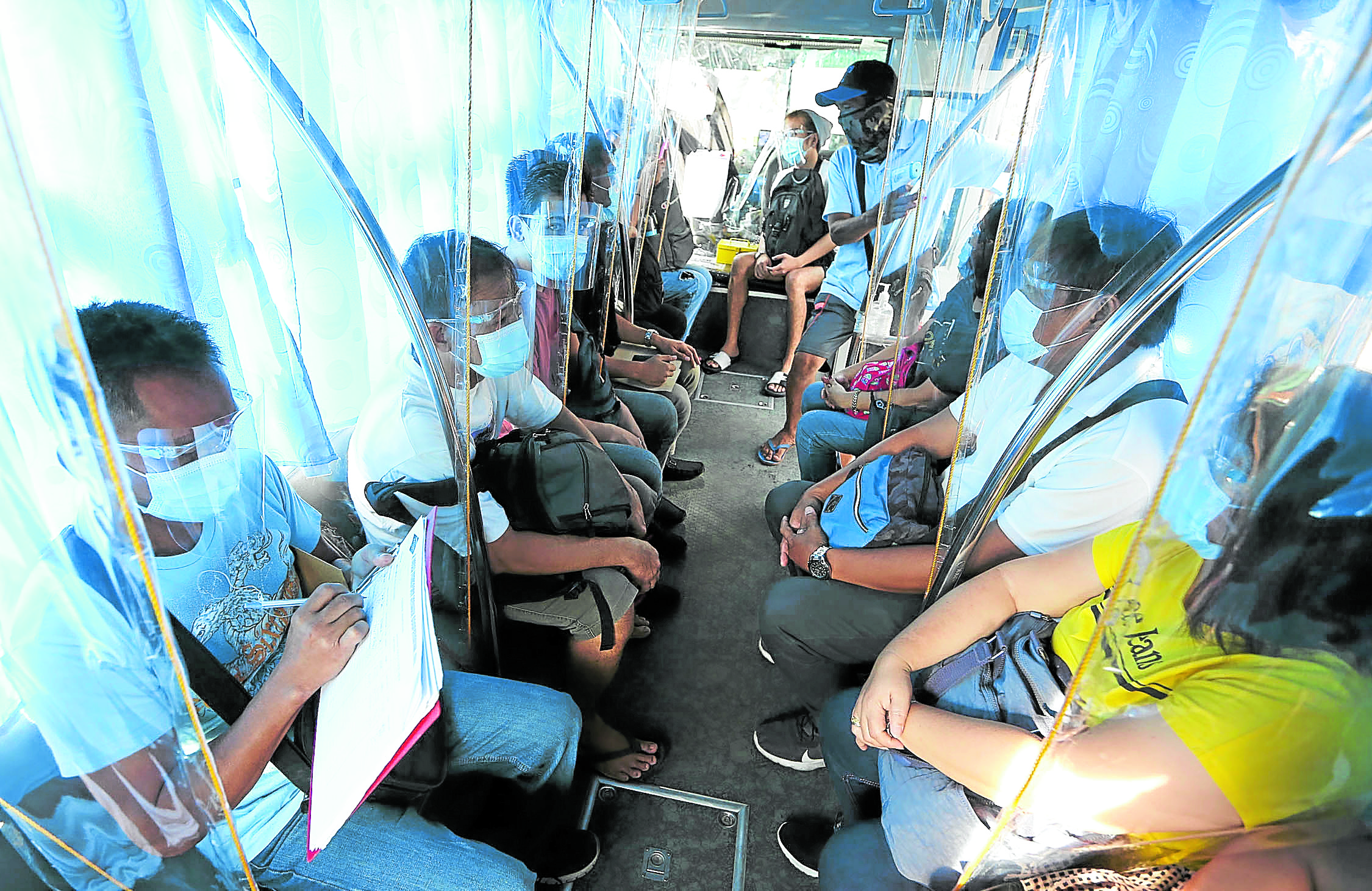
NOW THEY’RE SAYING THIS The Department of Transportation has cited studies abroad that found “no signicant correlation” between public transport capacity and the number of COVID-19 cases. —NIÑO JESUS ORBETA
MANILA, Philippines — A gradual increase in passenger capacities in railways and all forms of road-based public transport in Metro Manila will be implemented starting Nov. 4, the Department of Transportation (DOTr) announced on Friday.
The DOTr said the Inter-Agency Task Force for the Management of Emerging Infectious Diseases (IATF) approved on Thursday the proposed initial expansion in capacity to 70 percent from the current 50 percent.
The one-month pilot implementation of the buildup will be adjusted until public utility vehicles (PUVs) reach their full capacity.
The DOTr—which earlier pushed for a return to 100-percent capacity, a proposal also backed by transport groups—said it would issue a memorandum to execute the IATF approval, which also authorized the department to later expand the program to other areas and other PUVs.
Even with the new policy, however, the DOTr reiterated that health and safety protocols would still be strictly implemented inside PUVs.
Justification
Transportation Undersecretary Artemio Tuazon said the DOTr presented to the IATF its rapid analysis of the link between COVID-19 cases and public transportation and a review of related literature in support of the proposal.
It cited scientific studies in Vietnam and China and a report by the British Medical Journal to argue that “public transport capacity has no significant correlation with the number of COVID-19 cases.”
The DOTr said it suggested the capacity increase in response to the high demand for public transport following the easing of quarantine restrictions and the reopening of more business establishments.
Mark Steven Pastor, assistant secretary for road transport and infrastructure, said the IATF approval would be a big help to PUV drivers.
“This is a welcome development considering the burden on our PUV drivers and operators of implementing the limited passenger capacity rule, which was aggravated by recent fuel price hikes,” Pastor said.
Jeepney phaseout
Several transport groups earlier backed the DOTr proposal, but stressed that the capacity limit was just one of the issues faced by distressed transport workers.
In the University of the Philippines (UP) Diliman in Quezon City, jeepney driver and UP Transport Group spokesperson Nolan Grulla said many of them were still off the road due to the impending phaseout of old jeepney units.
Since June last year, the Land Transportation Franchising and Regulatory Board has been slowly reopening routes for roadworthy PUVs with a valid and existing certificate of public convenience or have applied for an extension of its validity.
However, only drivers and operators who have consolidated their fleets for the government-mandated modernization program were tapped for the Libreng Sakay and PUV service contracting program.
For drivers like him who could not afford the P1.6million to 2.4 million in loan to buy modern jeepneys, they have to deal with a low turnout of passengers due to route changes and the 50-percent capacity limit on public transportation.
Grulla said drivers in six jeepney routes in UP were earning only P81 each trip due to the 50-percent capacity cap that allowed them to accommodate only nine passengers.